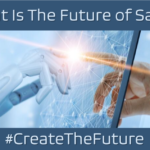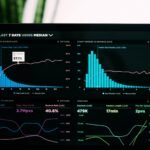The history of artificial intelligence
Artificial Intelligence (AI) has become an integral part of our modern lives, revolutionizing industries, augmenting human capabilities, and reshaping the way we interact with technology. But how did we arrive at this transformative era of AI? In this blog post, we will take a captivating journey through the history of artificial intelligence, exploring its origins, key milestones, and the remarkable advancements that have propelled us into an age of limitless possibilities.
The Birth of Artificial Intelligence:
The roots of AI can be traced back to the mid-20th century when visionary researchers began exploring the concept of creating machines capable of mimicking human intelligence. The birth of AI as a field can be attributed to the groundbreaking work of pioneers such as Alan Turing, John McCarthy, and Marvin Minsky. Turing’s influential ideas on computability and the “Turing Test” laid the foundation for thinking about machine intelligence, while McCarthy and Minsky co-founded the Dartmouth Conference in 1956, which marked the birth of AI as a formal discipline.
Early Years and Symbolic AI:
During the 1950s and 1960s, the focus of AI research was on symbolic AI, also known as “Good Old-Fashioned AI” (GOFAI). Researchers aimed to create intelligent systems by manipulating symbols and rules using logic-based approaches. This era saw notable achievements, including the development of expert systems, which used rule-based inference engines to emulate human expertise in specific domains.
The Rise of Machine Learning and Neural Networks:
In the 1980s and 1990s, AI experienced a significant shift with the rise of machine learning and neural networks. Researchers recognized the limitations of symbolic AI and turned towards more data-driven approaches. Machine learning algorithms, such as decision trees and neural networks, emerged as powerful tools for pattern recognition and prediction. However, limited computing power and the lack of large-scale datasets hindered progress during this period.
The AI Winter and Resurgence:
The late 1980s and 1990s saw a period known as the “AI Winter,” where dwindling funding and unfulfilled promises led to a decline in AI research and public interest. However, the field experienced a resurgence in the 2000s, fueled by advancements in computational capabilities, the availability of massive datasets, and breakthroughs in machine learning techniques. This resurgence gave birth to practical applications such as speech recognition, image classification, and recommendation systems.
Deep Learning and the Era of Big Data:
The breakthrough in deep learning, a subset of machine learning focused on neural networks with multiple layers, has been a game-changer in recent years. Powered by the abundance of data and enhanced computational resources, deep learning has revolutionized areas like computer vision, natural language processing, and robotics. Deep neural networks, such as convolutional neural networks (CNNs) and recurrent neural networks (RNNs), have achieved remarkable feats, surpassing human-level performance in various tasks.
AI Today and Future Frontiers:
AI has become ubiquitous in our daily lives, from virtual assistants on our smartphones to personalized recommendations on streaming platforms. The integration of AI in diverse domains like healthcare, finance, transportation, and cybersecurity has unleashed immense potential for innovation and efficiency. Cutting-edge technologies such as reinforcement learning, generative adversarial networks (GANs), and explainable AI (XAI) are pushing the boundaries of what AI can achieve.
Looking ahead, the future of AI holds incredible promise. Advancements in areas like explainability, ethics, and human-AI collaboration will be crucial for building trust and ensuring responsible AI deployment. The convergence of AI with other emerging technologies like blockchain, Internet of Things (IoT), and quantum computing opens up new possibilities and challenges, paving the way for the next phase of AI evolution.


































